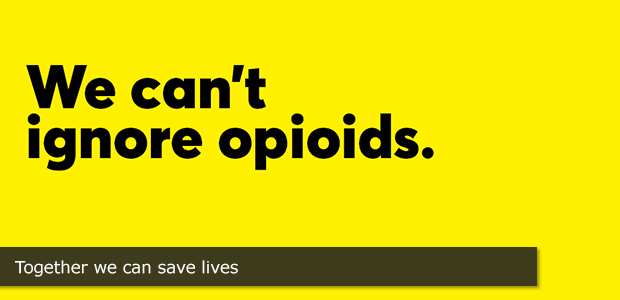
As the opioid crisis in Alberta continues to work its way into our cities, towns, suburbs and homes, Alberta Health Services (AHS) remains committed to reduce harms and deaths related to opioid use.
No one is immune to opioids, and no one organization working alone can turn the tide. Red Deer continues to have a high rate of opioid-related overdoses, many resulting in death. Changing that story is not something AHS can do alone.
Addiction is a complex condition and the root causes include psychological, social, and biological components. Addressing the opioid crisis requires multifaceted response from government and community partners to address awareness, treatment, harm reduction and organized crime.
In Red Deer, AHS has been, and continues to be, fully committed to helping open a supervised consumption service. To do so requires the support and collaboration of the provincial health ministry Alberta Health, local agencies, RCMP, the City of Red Deer and the community.
Alberta Health Services is an active member of the Red Deer Coalition on the Opioid Crisis and has been working with our partners to develop community-based strategies on prevention, education and awareness, harm reduction and treatment.
We have met with the City before, and are looking forward to further discussions with Mayor Tara Veer this week.
In conversations with our partners, AHS facilities were not considered by the coalition as appropriate locations to deliver supervised consumption services. AHS stands by our position that providing such a service at the Red Deer Regional Hospital Centre (RDRHC) is not the right approach.
It is no secret that RDRHC faces capacity pressures. Any available space within the facility is already being used to support the delivery of specialized care and treatment services which cannot be offered elsewhere. Current and future planning regarding RDRHC needs to be focused on the provision of acute care services in order to maintain appropriate access to care for Red Deer and area residents.
It is no secret that Red Deer Regional Hospital Centre faces capacity pressures. Any available space within the facility is already being used to support the delivery of specialized care and treatment services which cannot be offered elsewhere. Current and future planning regarding RDRHC needs to be focused on the provision of acute care services in order to maintain appropriate access to care for Red Deer and area residents.
We do have successful supervised consumption services happening in AHS facilities in Calgary and Edmonton, but they operate under very different circumstances. At the Royal Alexandra Hospital in Edmonton, the service is only available for inpatients. It provides a clean and safe environment with appropriate monitoring while patients receive ongoing treatment for other medical issues.
In Calgary’s inner city, the Sheldon Chumir Health Centre offers complementary programs including Safeworks, whose services include a needle exchange program, testing and counselling for HIV, providing naloxone kits, wound care and peer outreach. Supervised consumption service clients have access to wraparound services under one roof.
This kind of setup is not currently possible at the hospital in Red Deer. There are however local agencies, such as Turning Point, who do have such supports all in one place, as well as existing relationships with clients. These natural connections make them well-positioned to implement a supervised consumption service to further the local response to the opioid crisis.
The location of SCS is critical to its success in reducing deaths due to opioid overdoses in Red Deer.
Locating an SCS away from the individuals who need the service makes it inaccessible.
With the appropriate supports and space allotted, supervised consumption services don’t need to be offered in a hospital. They can be effectively operated in a community-based setting, close to those who need it.
We recognize that addressing complex social issues like opioid addiction requires a community approach, and that is why we continue to work with our community partners to provide education, awareness and supports.
Supervised consumption services is one strategy being implemented in Alberta in response to the opioid crisis. Since 2016, AHS has opened or expanded services including new opioid dependency clinics in southern and northern Alberta, as well as a rural opioid dependency program in Central Alberta that supports clients from more than 50 communities, including Red Deer.
More than 45,555 naloxone kits have been dispensed through the Take Home Naloxone program since 2016. Treatment for opioid use is available for adults, youth, and families. We have specialized programs for youth, women and Indigenous people, clients with concurrent disorders, and clients with opioid dependencies.
Our goal is to ensure we can reduce deaths and provide supports and other services that may provide an opportunity for someone to seek the help and support they need when dealing with substance use challenges.
We will continue to willingly and supportively work to support a supervised consumption service in Red Deer.
Together, we can save lives.
Add your comment